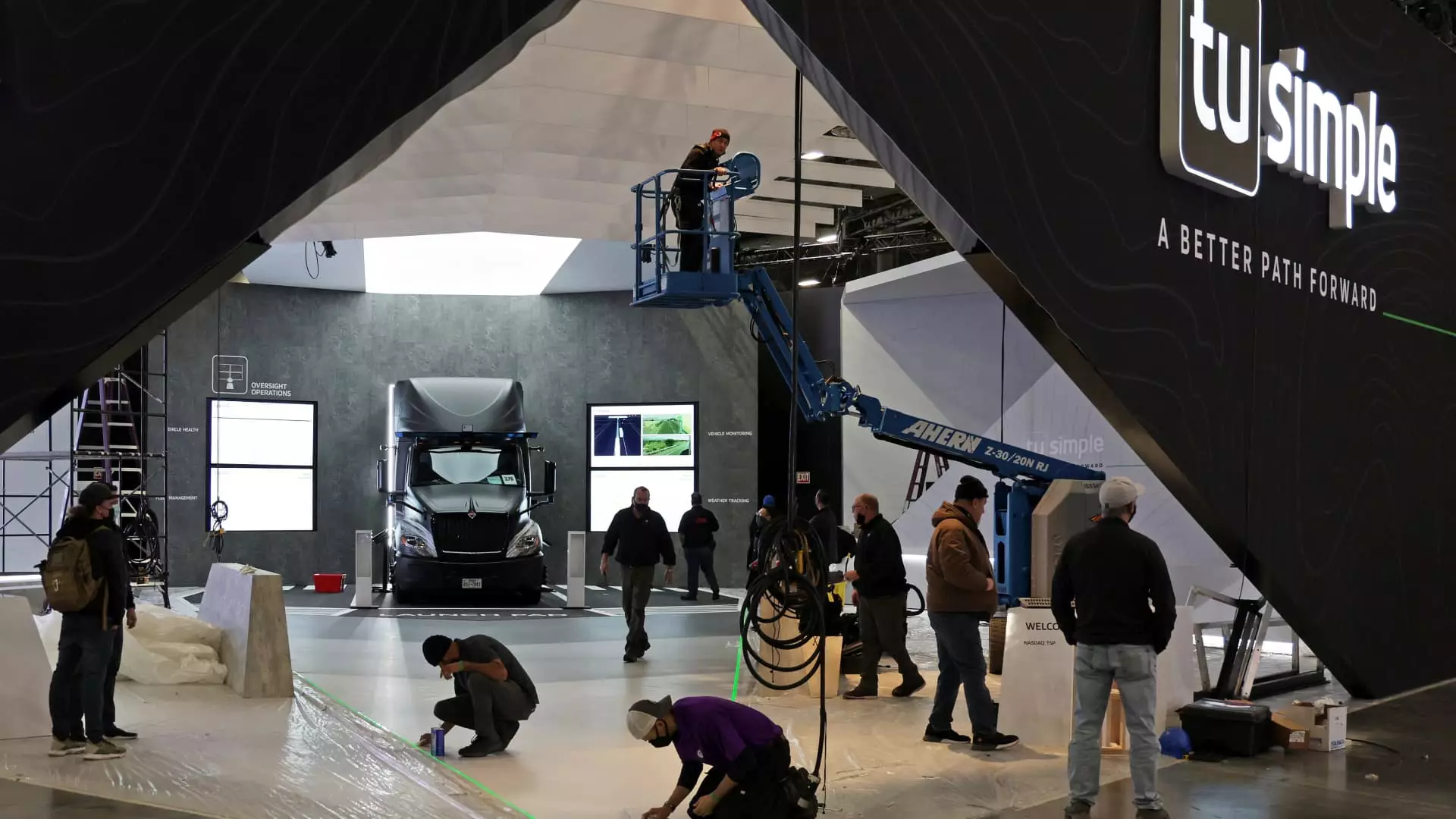In an unexpected strategic pivot, TuSimple, the Chinese autonomous trucking enterprise, has announced its rebranding as CreateAI. This shift follows the challenging realities facing the self-driving sector, which has witnessed a significant retrenchment in recent months. The transition signals a move away from its original focus on autonomous vehicles towards new opportunities in the realms of gaming and animation, an area that stands to benefit from the rise of artificial intelligence.
The Current Landscape of the Autonomous Vehicle Market
The climate for self-driving technology has become increasingly harsh, particularly with high-profile failures like General Motors’ exit from the robotaxi business earlier this month. It seems that investors and consumers alike are cooling on the once-promising self-driving sector, drawing a line between innovation and the actual delivery of practical, safe applications. By shifting away from the autonomous trucking sector, TuSimple—now CreateAI—aims to sidestep the pitfalls that have ensnared many of its peers.
Prior to this transformation, TuSimple grappled with significant hurdles, including safety concerns around its vehicles, a staggering $189 million settlement stemming from a securities fraud lawsuit, and a troubling delisting from NASDAQ earlier this year. Cheng Lu, who has returned as CEO after being pushed out previously, envisions a brighter future for the newly minted CreateAI, projecting that the company will reach a break-even point by 2026. The turning point seems to hinge on an innovative video game inspired by famed martial arts novelist Jin Yong, promising to generate substantial revenues for the company.
As CreateAI embarks on this new journey, it has unveiled its first significant AI initiative, an open-source model named Ruyi, aimed at visual work and hosted on the Hugging Face platform. This move demonstrates an ambition to integrate cutting-edge AI technology not only into gaming but also into the broader animation landscape. CreateAI’s strategy to develop generative AI applications follows the trend set by major players like OpenAI, which has captured attention through technologies such as ChatGPT.
The company is informed by its claims that their expertise gained through developing autonomous driving software will give them a formidable base for promising sectors like generative AI. Cheng has expressed optimism, noting that the company anticipates a windfall of “several hundred million” dollars in revenue by 2027, coinciding with the official release of the video game based on Jin Yong’s work. This expectation comes despite the company registering a loss of $500,000 in the first three quarters of 2023 and expending $164.4 million on research and development—a clear indication of the financial commitment that supports this ambitious pivot.
The Role of Partnerships and Future Collaboration
Notably, even before adopting the CreateAI name, TuSimple was already partnering with Shanghai Three Body Animation to craft an animated feature based on the celebrated science fiction series “The Three-Body Problem.” This partnership not only reflects the company’s dedication to pursuing ambitious projects but also emphasizes its strategic investment in the animated film space, which is increasingly fused with advanced gaming concepts.
As CreateAI continues to align its vision with shareholder interests, an annual meeting is scheduled, where further elucidation of this transformative path is expected. Cheng has signaled intentions to grow the workforce significantly, aiming to increase from 300 to approximately 500 employees next year. This expansion appears to be a reaction to the burgeoning demand for skilled talent in the fields of gaming and AI development.
Interestingly, while many Chinese firms face troubling regulatory constraints from the U.S. government—particularly concerning access to advanced semiconductor technology—Cheng has attempted to mitigate fears. He maintained that CreateAI has diversified its cloud computing services, utilizing a hybrid of suppliers from both China and abroad, thus reducing the likelihood of detrimental impacts on the company’s innovations.
In a technological landscape fraught with uncertainty and rapid change, CreateAI’s transformation from TuSimple represents a case study in resilience and adaptability. As the company forges ahead into the gaming industry, it remains to be seen whether its innovations will capture the imagination of the next generation of gamers and storytellers, ultimately redefining its identity in the process.

